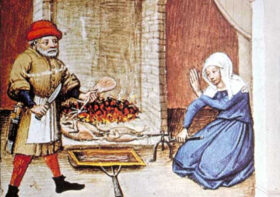Mimi Khalvati on form, and a few ‘banned’ words

Saturday was our penultimate workshop with Mimi Khalvati before the summer-autumn break. (By the way I realise the title of this post could be read as a pun -‘ on form’, geddit?? Um, sorry…)
This month, several of us got pulled up for the chosen form of our poems. Classic Mimi comments often sound like rhetorical questions. “What am I supposed to do with a short line on its own like that?” “Why would you write something that’s a classic ballad in free verse?” “Couldn’t you make this more interesting?” She looks at you with an expression of such disappointment you can’t really think of an answer, other than “I don’t know! I’ve let you down again and I’m really sorry!”
Anyway, either we’re all class A masochists or we do need this kind of talking-to in order to improve. So here are a few of Mimi’s comments that I jotted down. As always, please excuse the brevity. Hope they make sense, divorced as they are from the poems under discussion.
- Be careful of words or images that work too hard and break the fabric of the poem. The reader wants her attention drawn to the poem, not the poet.
- Many lyric poems (for example about a bird, or about digging or fishing) act as metaphors for something else, so be careful of referencing that thing explicitly if it’s already implied.
- When writing in free verse you still need a rationale for your chosen stanza breaks or line length, otherwise the effect can just be ‘paragraphy’. And be open to the possibility of form – it may be that free verse isn’t doing the poem justice.
- If you have one line of a different length to the others then it will attract attention. You need a good reason to throw in a odd-length line. It needs to stand up to close inspection.
- Beware potentially archaic words – Mimi has a bee in her bonnet about beneath – apparently we never say or write it except in poetry. (Is this true, do you think?) Ditto within and for (when used to mean ‘because’.) And being IAMBs naturally both beneath and within are even more likely to lead us into temptation. O woe, thrice woe for our disappearing tongue!




Mimi got me to use ‘under’ for ‘beneath’ once – and in fact it worked given that particular poem’s diction. I’m not convinced, however, that ‘beneath’ should be banned from poetry on the basis that we don’t say it in everyday language. I do use the word ‘beneath’ (at least I think I do). I think I instinctively object to the idea of wanting to ban anything (from anywhere). And sometimes it is those strange words and strange names of things that flavour the poem. And also, I’m not convinced of the logic of the argument of not using words in poetry that we don’t normally use in everyday language. I mean, we don’t talk ‘in poetry’ either, do we?
The issue, really, is whether your word choice ‘works’.
Thanks for commenting, Michaela – I agree with you that ultimately it depends on the context and I’m slightly nervous about the idea of banned words. I guess the message is just to always question the word choice, to do a sort of ‘double check’. Perhaps better to refer to them as ‘red light’ words rather than banned words. (To be fair, I don’t think Mimi used the expression ‘banned words’…) Do we talk in poetry? Ooh… sometimes maybe 🙂
Hi Robin
Really enjoyed this post – I did a residential course last summer with Mimi – and I think she is fantastic – very rigorous and doesn’t pull any punches but does it in such a nice way as well…
Hi Kim – yes, she can be breathtakingly blunt but she does it in a nice way, you have to laugh really, fess up and move on!
Oh, to be as instantly sharp and clear as Mimi K! I honestly thought until now that i might use the word ‘beneath’ in speech but now I think about it I realise i probably never do. …ratehr like a ‘neath! OUCH! (I agree about ‘within’ though. i really don’t say that or write it….er, though if somethign were very much INside something I might well) Very interesting especially the challenging questions but liek your other comments I think even these words have their place at times! Thanks
Thanks Rebecca – yes, I’m still not convinced I never say ‘beneath’. Within still has a life in various phrases, such as ‘I blame the perfectionist within me’ or ‘I’ll be there within the hour’ (although you could argue that’s a different meaning of ‘within’).
Really interesting post. Sometimes if I hear a word in a poem that seems a bit “beneath” it turns me off immediately, though of course there are always exceptions!
I was at an open workshopping group last night and heard two ‘beneaths’ and two ‘shards’ – tee hee
‘shard’ is definitely a no-no!
Might be fun to try and write a poem with all the ‘banned’ words in it, but to do it seriously, try and make it work.
I did once write a ditty about ‘the’ Shard, partly in order to include the word ‘shard’ in the punchline, can’t say it was all that serious though.
‘Bladderwrack’! Kill it!